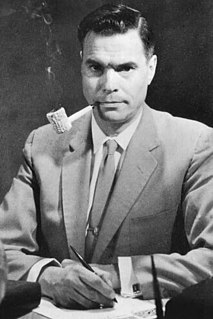A Quote by Catherine Camus
There are indications that today the intellectuals are coming back to [Albert] Camus. History has given them reason to, with the fall of communism.
Related Quotes
During the '80s, those you would call the young philosophers of France, such as Bernard-Henri Lévy and [André ] Gluxman, pointed out that Camus had said things no one wanted to hear in the political arena. They said it was [Albert] Camus who was right, not those who had slid under the influence of Sartre, that is to say an unconditional devotion to Communism as seen in the Soviet Union. And ever since then the evaluation of Camus has continued to modify up until today
[Albert Camus] positions are sensed. So, naturally, those intellectuals who don't have that experience have difficulty in comprehending it. But I think it made Camus more tolerant because he had already seen both sides of things when the others had only ever seen one. They imagine poverty, but they don't know what it is. In fact they've got a sort of bad conscience about the working classes.
So time passes, and a much more political rather than literary reasoning intervenes, and from the day that [Albert] Camus wrote The Rebel, in 1955, there comes the rupture, and all, nearly all of the left wing intellectuals become hostile to him. Since he was already unfavourably viewed by the right-wing, he found himself entirely alone.
Today's liberal intellectuals, who pride themselves on scientific method and being “broadminded”, are the most narrow-minded, self-righteous and hate-filled bigots in the history of humanity. No primitive tribe worshipping with its witch-doctor was ever more vicious in its hatred and suppression of heretics than today's Marxist intellectuals, anti-racists and liberals.
Albert Camus was never abandoned by his readers. Camus is enormously read. He's the highest selling author in the entire Gallimard collection, and has been for some years now. Sales haven't ever stopped, so to talk about rediscovering him would suggest that he isn't read anymore and that's not true.
What the articles which have been written about The First Man propose is humility. The acceptance of these contradictions. Seeking an explanation is death. The lie is death in [Albert] Camus. That's why in Camus' play The Misunderstood the son dies, killed by his sister and his mother, because he lied. He never told them who he was. They killed him because they didn't recognise him.


















